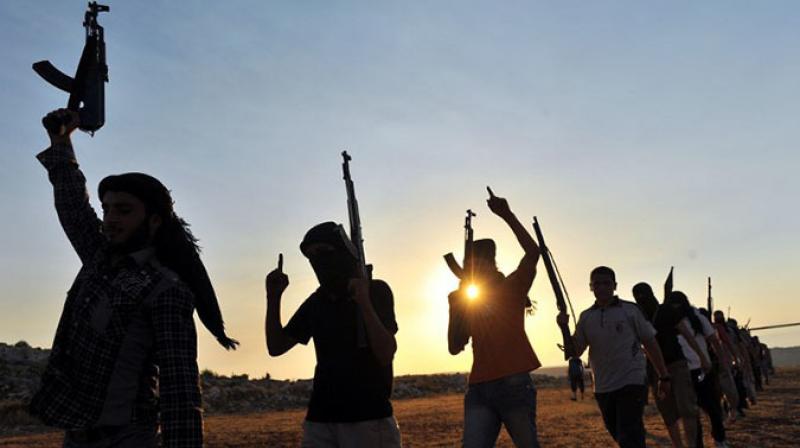45,000 opposition fighters in Afghanistan: UN experts

United Nations: Fighters loyal to al-Qaeda have taken on a more active supporting role for the Taliban during the current offensive in Afghanistan while the position of the Islamic State extremist group in the country "has distinctly weakened," UN experts said in a report circulated Friday.
The experts said the Afghan government and several other countries estimate that there are about 45,000 opposition fighters in Afghanistan and between 20 percent and 25 percent are foreigners.
These "bad actors mutually reinforced each other and presented a significant and rising terrorist challenge not only for the country but also for the international community," the experts quoted several unnamed senior officials as saying.
The Taliban have been fighting to overthrow the Kabul government since their own regime was ousted in a US invasion in 2001 and in recent months, they have stepped up attacks across Afghanistan. The Islamic State group, on the other hand, is a more recent addition to Afghanistan's security woes.
The experts said several countries highlighted that relations between the Taliban and al-Qaeda strengthened during the time Akhtar Mansour led the Taliban and the improved ties have continued under his successor, Haibatullah Akhundzada.
Several countries told the experts that al-Qaea fighters "acted as specialised instructors for Taliban groups, in particular as far as the design of improvised explosive devices was concerned," the report said.
The experts, who monitor sanctions against al-Qaeda and the Taliban, said in the report to the UN Security Council that the Islamic State group has lost territory and fighters. "However, it remains a serious challenge," they said.
At the high point of its influence in 2015, IS fighters controlled nine districts in Nangarhar Province but currently their influence has been reduced, at most, to 3 1/2 districts, the experts said. They said the number of fighters fell as a result of Afghan military action and international air strikes.
"The group's ability to take and hold territory was also affected by clashes with Taliban fighters competing for local influence and particularly for resources, funding and manpower," they said.
The experts said several countries reported to the team that the number of Islamic State fighters in eastern Afghanistan had dropped from an estimate of fewer than 3,500 to about 1,600, of whom 700 are foreigners.
Nonetheless, it said, the Islamic State group has maintained "an active propaganda campaign inside Afghanistan," with a key tool being a mobile radio station that remains in operation despite Afghan and international efforts to target it.
As for foreign fighters, the report said the largest proportion - approximately 7,500 to 7,600 - fled Pakistan as a result of military operations and were fighting alongside the Afghan Taliban.
A second group reportedly comprises fighters from China, Russia and Central Asia fighting with Islamic groups including the Islamic Movement of Uzbekistan, while the third group comprises Islamic State fighters and the fourth al-Qaida and its affiliates, the report said.

